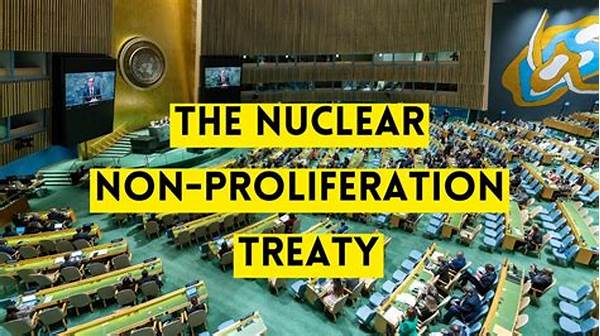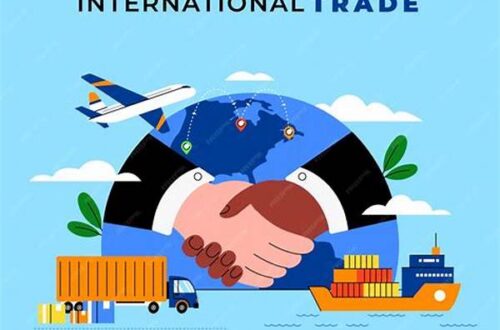The Nuclear Non-Proliferation Treaty (NPT) stands as a cornerstone of international efforts to prevent the spread of nuclear weapons and promote disarmament. As a legally binding international agreement, the NPT requires robust enforcement to ensure compliance among member states. This enforcement plays a critical role in maintaining global security and stability. Understanding the mechanisms and challenges associated with nuclear non-proliferation treaty enforcement is essential for sustaining the treaty’s objectives.
Mechanisms of Nuclear Non-Proliferation Treaty Enforcement
Nuclear non-proliferation treaty enforcement primarily involves verification mechanisms, diplomatic efforts, and sanctions. Verification is executed through the International Atomic Energy Agency (IAEA), which monitors nuclear activities and ensures that civilian nuclear programs are not diverted for military purposes. Comprehensive safeguards and inspections are integral to this process, requiring cooperative engagement from member states. Diplomatic negotiations and dialogues also play significant roles, particularly when addressing compliance concerns. The imposition of sanctions serves as both a deterrent and a consequence for non-compliance. However, enforcing the nuclear non-proliferation treaty is fraught with challenges, including geopolitical tensions, varying national interests, and resource limitations. Therefore, ongoing international collaboration and a strong commitment to the NPT’s principles are paramount to achieving its goals.
Challenges in Ensuring Compliance
1. Geopolitical Tensions:
Geopolitical dynamics often complicate nuclear non-proliferation treaty enforcement, as differing national interests might inhibit collective action.
2. Verification Limitations:
Some nations may impede the IAEA’s verification processes, hindering effective nuclear non-proliferation treaty enforcement.
3. Resource Constraints:
Limited resources may affect the IAEA’s ability to conduct thorough inspections to enforce the nuclear non-proliferation treaty.
4. Technological Advancements:
Rapid advancements in nuclear technology can outpace existing enforcement mechanisms of the nuclear non-proliferation treaty.
5. Political Will:
Enforcing the nuclear non-proliferation treaty requires steadfast political commitment from all member states, often challenging to secure.
The Role of the International Atomic Energy Agency
The International Atomic Energy Agency (IAEA) is pivotal in nuclear non-proliferation treaty enforcement, serving as the primary body responsible for verification and compliance. Through comprehensive safeguards agreements, the IAEA conducts inspections and monitors nuclear facilities to ensure adherence to NPT obligations. The agency’s technical expertise and impartiality are crucial in building trust among member states, facilitating transparency, and preventing the illicit use of nuclear materials. However, the effectiveness of the IAEA’s efforts depends on the cooperation of state parties and adequate resource allocation. Challenges such as resistance from non-compliant states and evolving nuclear technologies require the IAEA to continuously adapt its strategies. The success of nuclear non-proliferation treaty enforcement thus hinges on the agency’s capabilities and international support.
Diplomatic Approaches to Treaty Violations
Addressing nuclear non-proliferation treaty enforcement violations requires nuanced diplomatic strategies. Engaging in dialogue and negotiation is often the preferred initial response to potential breaches. Diplomatic engagement seeks to resolve issues amicably and foster cooperation among states. However, when violations persist, punitive measures such as economic sanctions or diplomatic isolation may be necessary to compel compliance. The effectiveness of these measures relies on international consensus and the willingness of states to uphold enforcement actions. In complex geopolitical environments, maintaining diplomatic channels is critical for resolving disputes and achieving the NPT’s objectives. Robust nuclear non-proliferation treaty enforcement thus necessitates a balanced approach combining diplomacy, negotiation, and, when necessary, coercive instruments.
The Importance of Multilateral Collaboration
Effective nuclear non-proliferation treaty enforcement depends significantly on multilateral collaboration. The diverse nature of the international community demands a unified effort to address proliferation challenges. Collective action among states, regional organizations, and international institutions enhances the enforcement mechanisms of the NPT. Sharing information, intelligence, and best practices strengthens global security and augments enforcement capabilities. Additionally, multilateral forums provide platforms for dialogue and conflict resolution, minimizing the risk of unilateral actions undermining the treaty’s framework. Therefore, sustaining nuclear non-proliferation treaty enforcement requires fostering collaborative networks and commitments among all stakeholders, reinforcing the treaty’s legacy of peace and security.
Legal Framework Supporting Enforcement
The legal framework underpinning nuclear non-proliferation treaty enforcement is essential for ensuring accountability and compliance among state parties. International law, as embodied in the NPT and various United Nations resolutions, provides the legal basis for enforcement actions. These legal instruments establish the rights and obligations of states, creating a structured framework for addressing violations. The role of international courts and tribunals in adjudicating disputes related to non-proliferation further supports enforcement efforts. Upholding the legal framework is vital for maintaining the treaty’s integrity and legitimacy. As such, continuous engagement with international legal processes is fundamental to reinforcing the authority and effectiveness of the nuclear non-proliferation treaty enforcement regime.
Summarizing Nuclear Non-Proliferation Treaty Enforcement
In conclusion, the enforcement of the Nuclear Non-Proliferation Treaty is a multifaceted and dynamic process critical to global peace and security. It involves various mechanisms, including verification by the IAEA, diplomatic engagement, and the imposition of sanctions to ensure compliance among member states. Despite challenges such as geopolitical tensions, resource limitations, and rapid technological advancements, a robust commitment to the treaty’s principles remains indispensable. Effective nuclear non-proliferation treaty enforcement relies heavily on international cooperation and the political will of all member states. In this context, multilateral collaboration and support from international legal frameworks are imperative to uphold the treaty’s objectives and sustain global security. The continuous evolution of enforcement strategies is necessary to address emerging challenges and foster a stronger nuclear non-proliferation regime.





